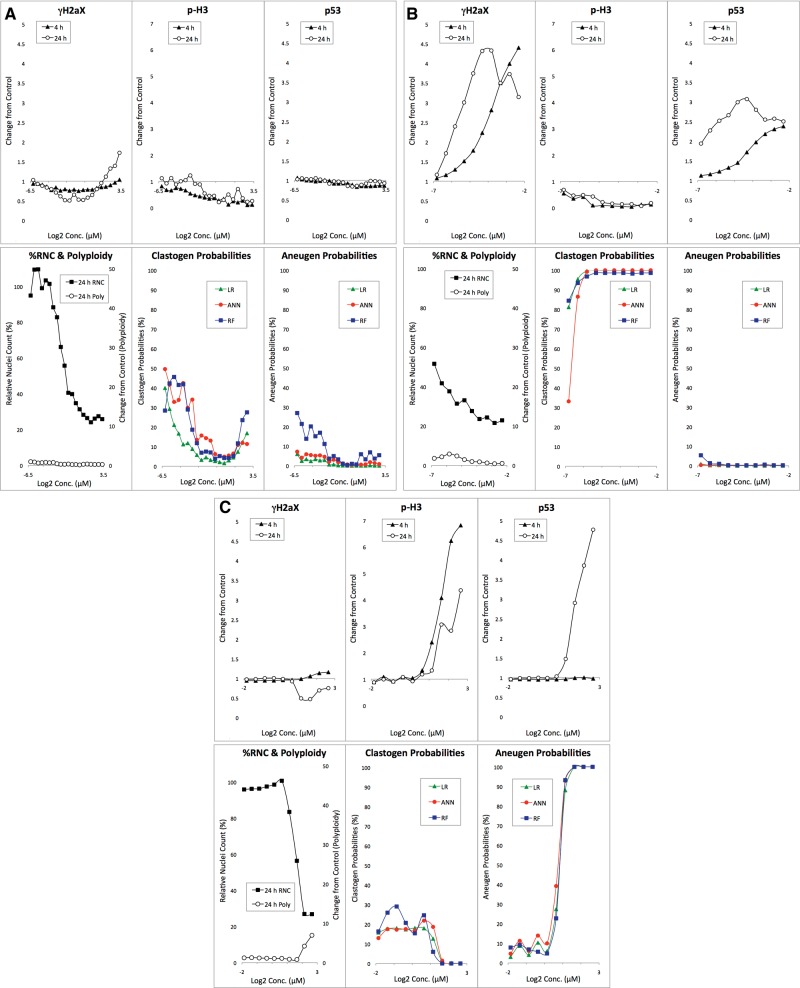Figure 2.
A, Biomarker response data are graphed for anisomycin-exposed TK6 cells versus concentration. The bottom middle panel shows clastogen probabilities as a function of anisomycin concentration based on 3 machine learning algorithms: LR, ANN, and RF. The bottom right panel shows analogous aneugen probability scores. B, Biomarker response data are graphed for adriamycin HCl-exposed TK6 cells versus concentration. The bottom middle panel shows clastogen probabilities as a function of adriamycin concentration based on 3 machine learning algorithms: LR, ANN, and RF. The bottom right panel shows analogous aneugen probability scores. C, Biomarker response data are graphed for 2,2’, 5,5’-tetrachlorobenzidine-exposed TK6 cells versus concentration. The bottom middle panel shows clastogen probabilities as a function of 2,2’, 5,5’-tetrachlorobenzidine concentration based on 3 machine learning algorithms: LR, ANN, and RF. The bottom right panel shows analogous aneugen probability scores.

